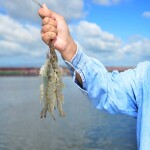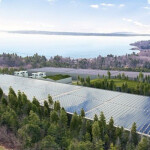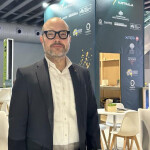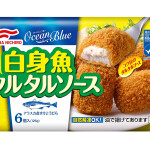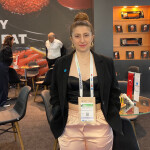Hong Kong’s fish lobby is going organic in a bid to raise fish farmers’ incomes as the region quickly runs out of land. In a move that may presage movements in mainland China, the Fish Marketing Organization (FMO) is for the first time helping producers of perch to get certified organic and hopes to expand to other species in an effort to get higher prices and stem the exit of farmers from the industry.
“There’s a 30 percent premium to be had for organic perch in the local market,” explained Yip Hin Wai, marketing officer at the FMO. The government-funded organization, which operates major seafood markets in Hong Kong, introduced the organic fish at the ongoing Seafood Expo Asia in Hong Kong. “We wanted to develop high end value added product for local fish farmers … the traditional fish farmer without any certification is not enough.” Likewise, land (or sea shore) is in short supply in Hong Kong. “No new licenses are being issued, thus farmers can only expand by renting from current or retiring farmers,” explained Yip.
The perch farms are currently in transition to full organic principles, as certified by the Hong Kong Organic Resource Centre Certification Ltd. Aquaculture supplies over half Hong Kong’s seafood output, with most of that coming from freshwater and 20 percent of total seafood consumption coming from seawater production. Hong Kong has put much effort in recent years into cleaning up its seashore and tightening regulations, said Yip. Whereas farmed seafood imported from the mainland has a major price advantage “it remains outside the regulatory supervision of Hong Kong authorities.”
The economic challenges of mainland China aquaculture are similar to those seen in Hong Kong, though sustainability is not yet seen as a solution among producers. Volatile – and currently low – tilapia prices drive farmers out of the sector but the cyclical nature of pricing has led to deterioration of quality and environmental standards as well as farm incomes, explained Han Han, executive director of China Blue Sustainability Institute, a new Chinese non-profit seeking to promote sustainability in the sector.
“Fish farmers in China are too concerned about the bottom line to worry about environmental problems like overuse of antibiotics and over-stocking of ponds. They do not see environmental certification as affordable … or the immediate priority for their bottom line.”
The Hong Kong organic fish are farmed in the Mai Po area of Hong Kong where Baptist University of Hong Kong researchers do regular checks on soil and water quality to ensure the requirements of organic certification are met. The certification is overseen by Hong Kong Baptist University and the Hong Kong Organic Resource Centre Certification Ltd, the only independent incorporated third party organic certification agent in Hong Kong which is in turn accredited by the International Federation of Organic Agriculture Movements (IFOAM).
Yip Hin Wai says it has proven too difficult to expand local aquaculture in certain species – among them the red pargo and the skewband grunt. “Hence we are concentrating on a smaller number of species.”

